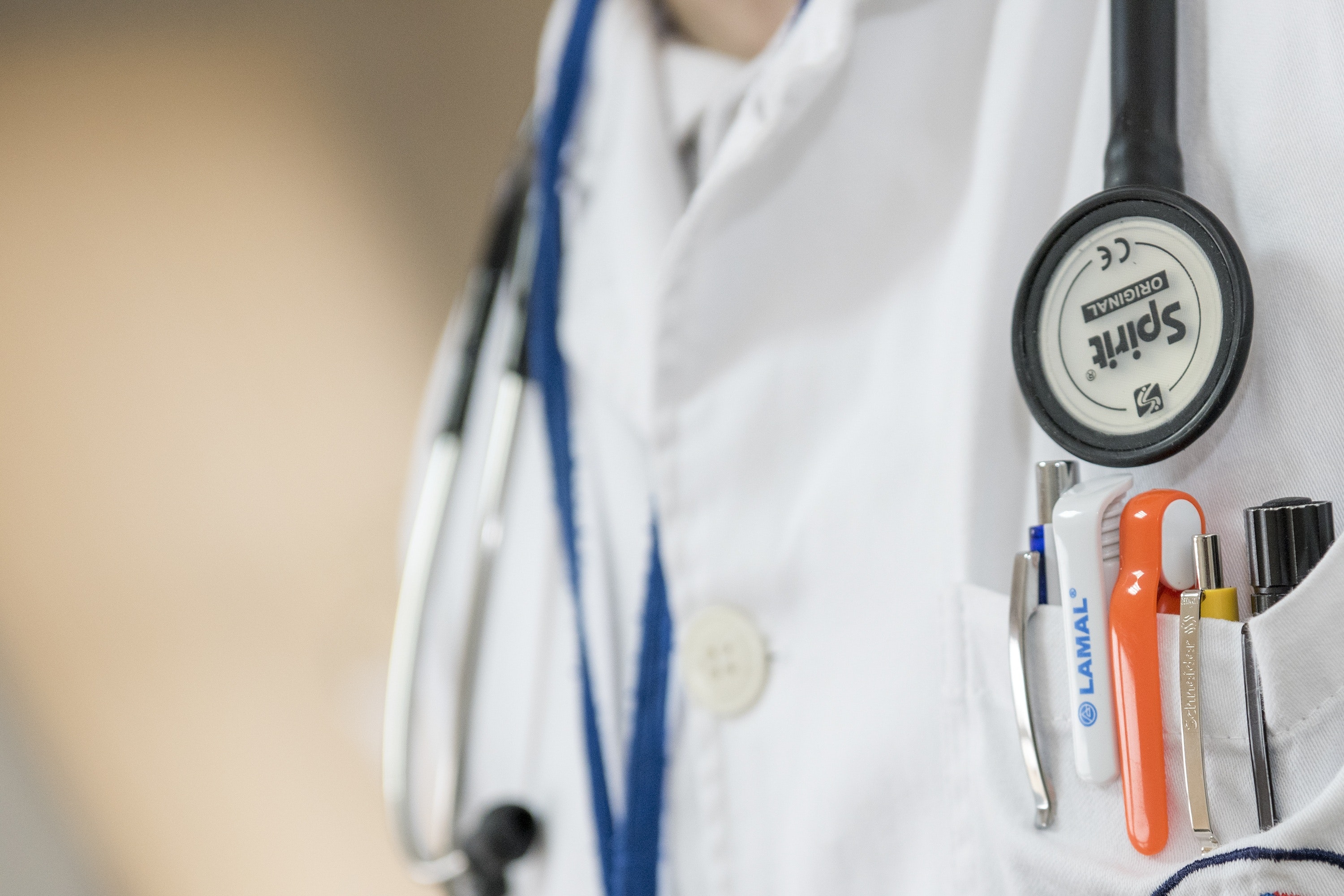For this reason, people should ensure that they isolate immediately if they think that they may have come into contact with the virus or if they have developed symptoms. The Center for Disease Control and Prevention (CDC) in December issued new isolation guidance for those infected with COVID-19, reducing the quarantine period from 10 days to five days. A July 2020 CDC report found that 35% of people who had mild cases of COVID-19 were not back to their usual state of health 1421 days after testing positive. Anju Goel, MD, MPH, is a public health consultant and physician with more than 10 years of experience in the California public health system. How long does coronavirus last in the body, air, and in food? How long does Covid typically last? More recent research suggests that adults develop circulating antibodies that last for nearly 500 days. Sore throat. 2023 Healthline Media UK Ltd, Brighton, UK. They also provide added protection to people who previously had COVID-19, particularly as new variants continue to emerge. While getting tested frequently, isolating, and quarantining can help curb the spread, experts agree that vaccination is the best defense. A patient undergoes a chest CT scan at the Gemelli Polyclinic in Rome to check her lung status after COVID-19. Anyone who is immunocompromised and may have been exposed to COVID-19 should contact their doctor. How Long After Having COVID-19 Are You Contagious? Vaccines and boosters can help people maintain immunity against variants. The immune system quickly identifies, attacks and destroys the spike proteins because it recognizes them as not part of you. In the meantime, vaccines not only continue to protect against severe disease, but evidence is also emerging that they can prevent many long COVID symptoms. Indoor Air and Coronavirus (COVID-19) | US EPA Later evidence suggested that natural immunity could last up to 11 months. It is not yet known how long the protection of the COVID-19 vaccine will last. Does Paxlovid prevent long COVID? The protective effect of vaccination got even larger at 90 days post-infection. If you've been exposed to someone who tested positive for COVID-19, you might wonder how long you'll be sick if you contract the virus. After day 5, someone who has had a mild COVID-19 infection can be around other people again if both of the below statements are true: If a person is only experiencing a loss of taste and smell as a lingering symptom, they do not need to continue isolating. How well do face masks protect against COVID-19? - Mayo Clinic While experts do not know exactly how long these antibodies stay in the body, the most recent research suggests that adults who contract the SARS-CoV-2 virus develop circulating antibodies that last nearly 500 days. How long do COVID-19 antibodies stay in the body? This neutralizes the virus, preventing it from infecting other cells and helping clear it from the body. Receiving a COVID-19 vaccine is a safer and more reliable way to build immunity than natural infection. COVID-19 has an incubation period, meaning it can be days before a person notices symptoms. The list of human tissues where SARS-CoV-2 hides long after the initial infection is growing. Is the ketogenic diet right for autoimmune conditions? Any medical information published on this website is not intended as a substitute for informed medical advice and you should not take any action before consulting with a healthcare professional. Centers for Disease Control and Prevention. Coronavirus (COVID-19) | Cancer Research UK But for most infected people, virus levels in the body peak between three and six days after the original infection, and the immune system clears the pathogen within 10 days. Torjesen I. Covid-19: Peak of viral shedding is later with omicron variant, Japanese data suggest. A study suggests that people's immune systems remember COVID-19 for months after recovery. In some cases, a person may need to isolate for 20 days or longer. Flu and COVID-19: How Do the Illnesses Compare? We link primary sources including studies, scientific references, and statistics within each article and also list them in the resources section at the bottom of our articles. If you have a more severe case or other medical conditions, it could take months. Overall, the length of time that the study participants shed potentially contagious virus particles was in the range of 516 days. Learn more about the transmission of SARS-CoV-2 here. And if you have to be around others inside your home or in public during the isolation period, you should wear a mask. 1. According to the CDC, COVID-19 symptoms can include: A doctor can determine if a person might have COVID-19, and if so, what to do next. SARS-CoV-2 spreads via respiratory droplets, which are tiny drops of liquid that enter the air when a person coughs, sneezes, or talks. One of the challenges of caring for a person with COVID-19 is that by the time they have symptoms, they might have been contagious for a few days. What are some of the best ways to clear phlegm with COVID-19? The information in this story is accurate as of press time. Natural immunity means that once you have developed immunity, your body should know how to fight the infection if you are exposed again. How long COVID-19 stays in the body varies from person to person. Clinical trials are currently happening to find out if we will need booster doses on an annual or longer basis. When a person develops symptoms or tests positive for COVID-19, isolating from others helps prevent the virus from spreading. Inflammation and problems with the immune system can also happen. What You Need to Know About CDCs Updated COVID-19 Quarantine Guidelines. These people can still transmit SARS-CoV-2. Do not visit a healthcare facility without calling ahead first. Therefore, unless you need a negative test result for travel, school, work, or other public events, you likely won't know if you are still positive after your symptoms end. As the infection travels your respiratory tract, your immune system fights back. This may mean SARS-CoV-2 will become a more seasonal virus in some climates. Ma Q, Liu J, Liu Q, et al. According to the Centers for Disease Control and Prevention (CDC), the minimum isolation period can vary depending on the factors listed below. The CDC also recommends wearing a high-quality mask indoors when around family or anyone else in the home. Even people who do not have any symptoms can transmit the virus. While Health is trying to keep our stories as up-to-date as possible, we also encourage readers to stay informed on news and recommendations for their own communities by using the CDC, WHO, and their local public health department as resources. But both authors urge caution before assuming that Paxlovid will be safe, effective, or sufficient and thereby a reliable cure for long COVID. 2023 Dotdash Media, Inc. All rights reserved, Verywell Health uses only high-quality sources, including peer-reviewed studies, to support the facts within our articles. Visit our coronavirus hub for the most recent information on the COVID-19 pandemic. The U.S. Centers for Disease Control and Prevention (CDC) recommends masks for the general public. Most people who develop COVID-19 symptoms improve without treatment in 26 weeks. However, getting a vaccine and booster shots remains the best way to protect against COVID-19. Follow the instructions on the product label. Batras study shows that patients who had prolonged shedding during an acute infection risk more severe outcomes from COVID-19, says Timothy Henrich, a virologist and immunologist at the University of California, San Francisco who was not involved in the new research. What do you do if youve been vaccinated and you get exposed? The COVID-19 recovery period depends on the severity of the illness. Likewise, lingering SARS-CoV-2 could cause long-term health problems. Currently, there is no direct evidence a person can contract SARS-CoV-2 from food. Heres what experts told Verywell about how long COVID stays in your system, as well as what you need to know to prevent transmission. Most people with COVID-19 aren't contagious for more than 10 days after symptom onset. Can People Exposed to COVID-19 Isolate Together? For those who don't take COVID seriously, it can be life changing.". They have not had a fever for 24 hours and have not used. Anyone who has been hospitalized to treat COVID-19 should talk with their doctor before ending isolation. However, in most cases, there are ways of telling the difference between these causes, SARS-CoV-2 antibodies may remain stable for at least 7 months after infection. As of November 2022, subvariant BA.5 is the predominant strain in the United States. How Long Does Protection Last After COVID-19? Many people experience mild symptoms, while some experience no symptoms at all. Yet those who experience symptoms may see them manifest in a variety of ways. (2022). Long COVID happens when a range of symptoms linger after recovery, and affect your quality of life. How Long Do COVID Antibodies Last? - GoodRx The CDC defines recovery from COVID-19 as an absence of fever, with no use of fever-reducing medication, for three full days; improvement in other symptoms, such as coughing and shortness of breath; a period of seven full days since symptoms first appeared. This year grading will include an allowance for disruption so that overall results will be similar to those of 2019. How long do SARS-CoV-2 antibodies persist after infection? MMWR Morb Mortal Wkly Rep 2021;70:17821784. MNT is the registered trade mark of Healthline Media. The team found that 42 percent of patients continued to test PCR positive two weeks or longer after their initial diagnosis. How to differentiate between COVID-19 and allergy symptoms. Coronavirus (COVID-19) test results may take a few days to a week, depending on different factors. Some patients, for variety of reasons, are not able to clear this reservoir, or their immune system reacts in some abnormal way that results in these persistent symptoms that have come to be termed as long COVID, says Batra. Protection against variants: Early studies of the. Claire Gillespie is an experienced health and wellness writer. For the most recent updates on COVID-19, visit ourcoronavirus news page. What to do if you were exposed to COVID-19. Most people with COVID-19 will have a mild illness and will recover in a few days. When Is It Safe To Be Around Someone Who Has Recovered From COVID-19? Their other symptoms of COVID-19 are improving. The Centers for Disease Control and Prevention (CDC) advise that people who test positive for COVID-19 should isolate themselves for the following amount of time: These figures represent when a person is most at risk for transmitting SARS-CoV-2 to others. It isn't clear how long these effects might last. Centers for Disease Control and Prevention. Thus, even though the SARS-CoV-2 virus may still be present, people are usually not infectious because the virus that is still in their system is dead or unable to replicate. COVID-19 immunity may last for over a year following natural infection, vaccination, or both. All rights reserved, Most COVID-19 patients recover from their acute infection, study, one of the largest focusing on hospitalised COVID-19 patients, shows, virus levels in the body peak between three and six days after the original infection, trial on chronic COVID-19 infection at Stanford, shed viral RNA in faeces seven months after, reservoirs are thought to allow the virus to persist, detected SARS-CoV-2 RNA persisting at low levels, occurs decades after a chickenpox infection, improvement in long COVID symptoms after patients were treated with Pfizer's COVID-19 oral antiviral Paxlovid, warned against off-label uses of Paxlovid, emergency use authorisation to treat mild to moderate COVID-19 in those who are at risk of developing severe disease, twice daily for five days soon after a positive test, study compared 1.5 million unvaccinated COVID-19 patients to 25,225 vaccinated patients with breakthrough infections. However, if you follow the guidelines outlined below, you can minimize the dangers. Moderate symptoms of COVID-19 include shortness of breath or difficulty breathing. At 15.2 days, the odds of continuing to shed the virus were less than 5%. Cookies collect information about your preferences and your devices and are used to make the site work as you expect it to, to understand how you interact with the site, and to show advertisements that are targeted to your interests. If a person develops symptoms, the clock resets to day 0 and the isolation period restarts. Health.com uses only high-quality sources, including peer-reviewed studies, to support the facts within our articles. People should follow isolation guidelines based on their health status and the severity of their infection. However, some emerging variants can evade immune responses, so a person requires booster doses to maintain protection. Anyone can have mild to severe symptoms. Here, learn more about the incubation period and when to call a, Coronavirus (COVID-19) test results may take a few days to a week, depending on different factors. We still don't know enough to make strong conclusions about any of the current proposed mechanisms, but research is actively underway to answer those questions, says Geng. When counting isolation days, remember that Day 0 is the day that a person first experiences symptoms or has a positive test result. If you have COVID or might have been exposed to someone who does, you can help curb the spread of the virus by staying away from others, monitoring your symptoms, and getting tested. The study suggests that when the genetic material of the virus, called RNA, lingers in the body longer than 14 days, patients may face worse disease outcomes, experience delirium, stay longer in. Centers for Disease Control and Prevention. Some information may be out of date. Still, associating any lingering virus with long COVID will require extensive studies. Symptoms of COVID-19 | CDC Infectious disease experts reaffirm that the best defense against COVID is vaccination. Taking precautions such as wearing a face mask, improving indoor ventilation, and moving indoor activities outdoors can greatly reduce the risk of further spread. However, symptoms typically appear within 45 days of exposure. 2023 Healthline Media UK Ltd, Brighton, UK. When Should You Get Tested for COVID-19 After Exposure? Day 0 is the first day you have symptoms, and the following day is day 1. Here is what we know so far. Mild to moderate COVID-19 - discharge. Regardless of vaccination status, everyone should take precautions for 10 days from the onset of symptoms, including wearing a mask if you have to be around others. This increases to 85.4% . This can make it difficult to tell who has the virus. 5 facts about the U.S. national debt | Pew Research Center Most people with mild to moderate illness are no longer contagious 10 days after the onset of symptoms, said Nichols. Nearly all of that debt - about $31.38 trillion - is subject to the statutory debt limit, leaving just $25 million in unused borrowing capacity. The information in this article is current as of the date listed, which means newer information may be available when you read this. All rights reserved. COVID-19 antibodies can stay in the body for a few months or over a year. One 2022 study found that 12%-51% of children had symptoms more than 4 weeks after a COVID diagnosis. Understanding how long the virus lasts in the body, and how long it can stay alive on surfaces or in the air, can help prevent transmission. After more than 90 days, 12 percent of the persistent shedders were still testing positive; one person tested positive 269 days after the original infection. Regardless of the SARS-CoV-2 variant, any of the symptoms can strike at any time during the course of the illness, from day one to the last days. The virus can affect your breathing or respiratory system. However, the CDC states that fully vaccinated people who were in close contact with a person who has COVID should get tested 5-7 days after their exposure, even if they dont have symptoms, and wear a mask indoors in public for 14 days following exposure or until their test result is negative.. While you are isolating, the CDC recommends that you: Nichols recommended waiting until you have had at least two COVID negative tests, 24 hours apart, to resume any activities that involve you being in the public and around other people. However, this does not necessarily reflect how long the virus itself remains active in the body. Within 2 to 14 days, your immune system may respond with symptoms including: Fever; A cough; .
Nys Dmv, Vehicle Make Abbreviations,
Does A 45 Day Closing Include Weekends,
Waves Beach Bar And Grill Aruba Menu,
North Woods Law Rabid Bobcat Release,
Julian Nagelsmann Principles Of Play,
Articles H





